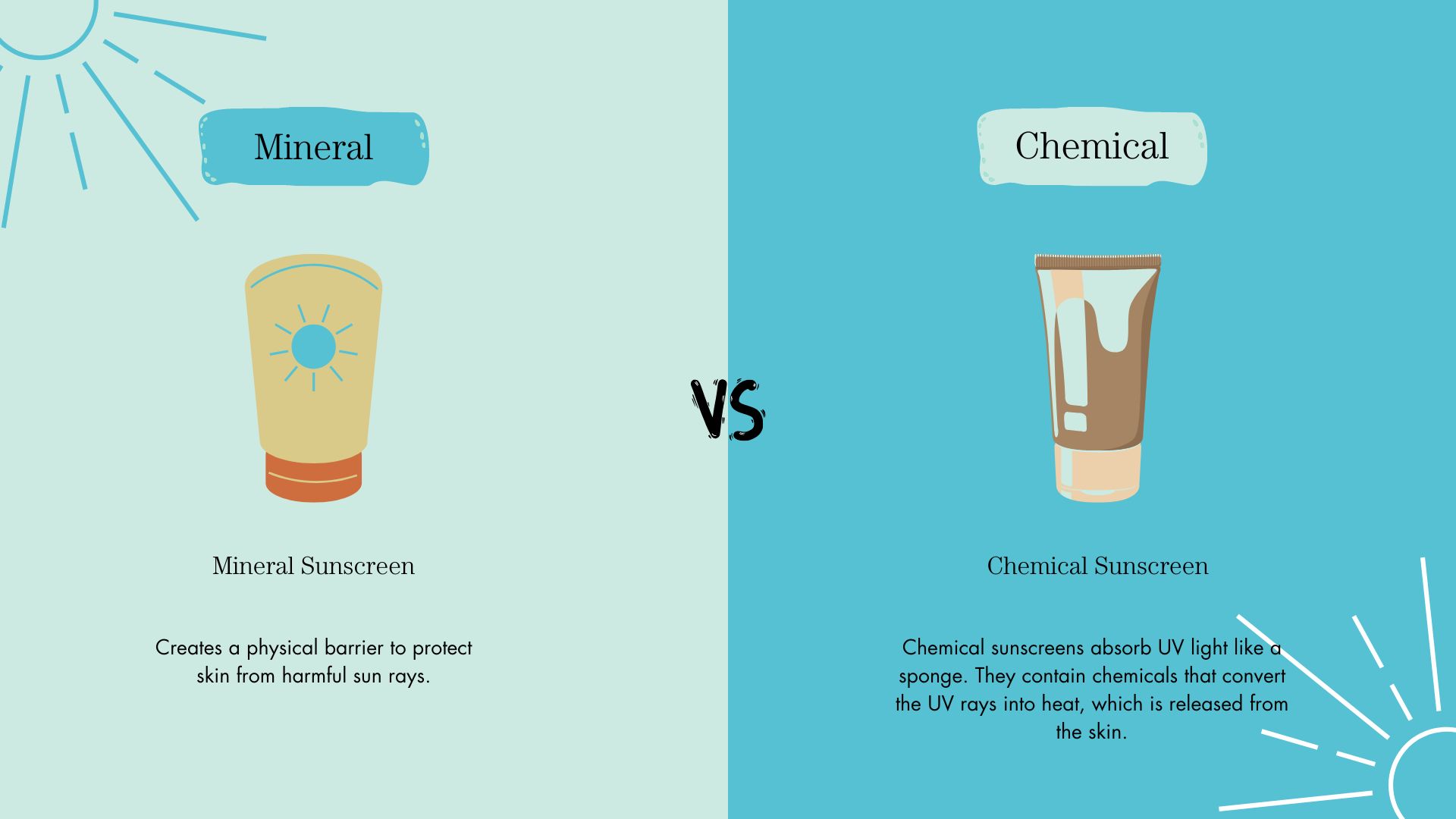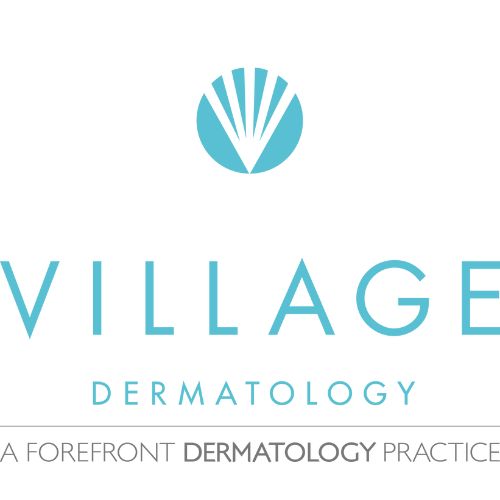Mineral vs. Chemical Sunscreen?
The majority of Americans love to spend time in the sun, and the sunlight is good for us in many ways. But the harmful UV rays in sunlight can lead to sunburns, premature skin aging, and an increased risk of skin cancer.
Sunscreens are scientifically proven to prevent these negative effects of sun exposure. There’s no doubt that sunscreens are good for skin and a necessary part of your daily skincare routine.
But when you look at supermarket or pharmacy shelves, the variety of sunscreens on offer can leave you confused. SPF 30 or 50? Mineral vs. chemical? Which sunscreen is best for you?
At Village Dermatology, our goal is to help you understand the differences between mineral and chemical sunscreens. The goal is to help you understand the pros and cons of each so you will become a more informed consumer.

What are mineral sunscreens?
Mineral sunscreens are designed to create a physical barrier on your skin’s surface and reflect the sun’s harmful rays away. These ingredients sit on top of your skin’s surface and physically protect it from the sun’s harmful UV rays.
What are chemical sunscreens?
Chemical sunscreens absorb UV light like a sponge. They contain chemicals that convert the UV rays into heat, which is released from the skin. Please note: All of the chemical sunscreens we carry are benzene-free.
What’s the difference between mineral vs. chemical sunscreens?
The main differentiator between mineral and chemical sunscreens is how they work. Mineral sunscreens form a physical barrier on the skin surface. Chemical sunscreens counteract harmful UV rays in sunlight through a chemical reaction.
Pros and Cons of Mineral vs. Chemical Sunscreens
Advantages of chemical sunscreens
- Quick and easy to apply
- Blend easily, and don’t leave a chalky film on the skin surface
- They are sheer and feel light on the skin
Disadvantages of chemical sunscreens
- Take 20-30 minutes to be absorbed into the skin
- Chemical sunscreens can cause skin reactions in some people with sensitive skin
Advantages of mineral sunscreens
- Safe and gentle enough for children and people with sensitive skin
- Offer immediate protection after application without a waiting period
- Mineral sunscreens can be applied on top of makeup and other skincare products
Disadvantages of mineral sunscreens
- It can leave a chalky film or white cast on the skin’s surface, especially in people with darker skin tones
- Mineral sunscreens need to be applied more frequently than chemical sunscreens
Combination Sunscreens
Thankfully, in today’s market, we don’t have to choose between chemical and mineral sunscreens. Several quality skin care product companies make combination sunscreens, so you get the cosmetic elegance of the chemical component while also benefiting from the mineral protection.
Closing Thoughts: Mineral vs. Chemical Sunscreen: Which is better?
The “better sunscreen” is the one you will actually use regularly! Thankfully, there are several different amazing companies that make cosmetically elegant products that work effectively.
The American Academy of Dermatology recommends using a broad-spectrum sunscreen (which protects you from UVA and UVB rays) with an SPF value of at least 30. Plus, reapplication at least every 2 hours.
We know from experience that if you don’t like using a particular skincare product, the compliance with that product drops off a lot! So, take the time to find a sunscreen product that works for you and your lifestyle. The Skincare Specialists in our Skin for Life Boutique are always available to help you choose a sunscreen product that fits your life.
Other Articles You May Enjoy
5 Ways to Protect Your Skin this Spring Break
5 Best Sunscreens for Every Skin Type
What Does the “DEJ” in Revision DEJ Products Mean?
How Oxidative Damage from Free Radicals Affects the Skin
The Skin Benefits of Vitamin C
Skin Care for Rosacea and Sensitive Skin

